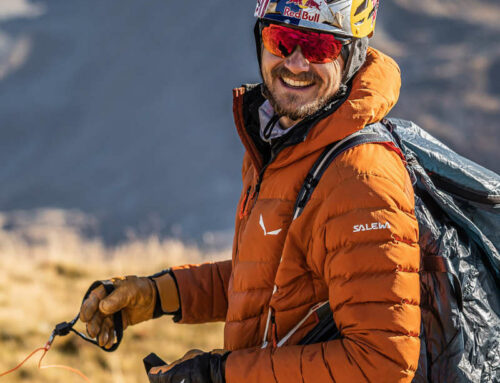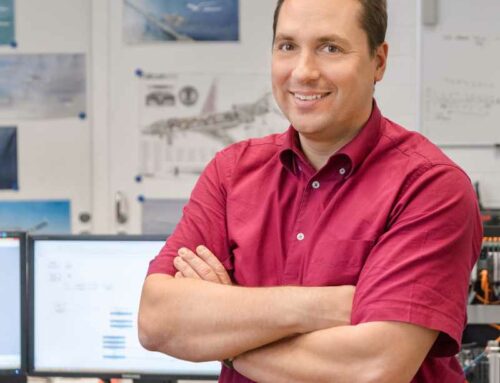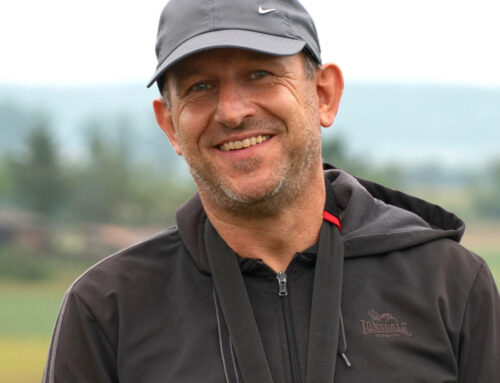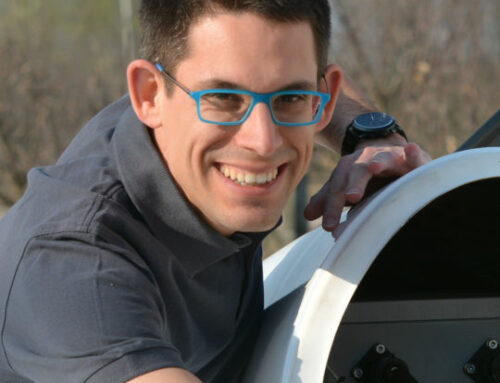“Close ties between industry and universities are a win-win.”
Prof. Marek Galek, Passioneer lecturer at Munich University of Applied Sciences

“Close ties between industry and universities are a win-win.”
Prof. Marek Galek, Passioneer lecturer at Munich University of Applied Sciences
At ERC, we are true “Passioneers”: Engineers who are passionate about their dream of advancing electric aviation to make life a little better for everyone, anywhere on Earth: a holistic vision that’s not only bigger than our product but truly #BiggerThanUs.
But we’re not the only ones living this dream. Our team of developers works closely together with a number of leading technological experts, combining our innovation and vision with their specialist knowledge.
One of these specialists is Prof. Marek Galek, who heads the Power Electronics Laboratory at Munich University of Applied Sciences. He and his team of researchers focus primarily on developing efficient ways to transfer energy from one form to another. Which, of course, is also an important question in the development of an eVTOL.
We spoke to Prof. Galek about his collaboration with ERC and the future of electric aviation.
Prof. Galek, can I begin by asking where your passion for electronics and electrical engineering comes from? Does it go back to your childhood?
Yes, we were that kind of family. My father was a mechanical engineer and we had our own workshop at home. Anything that broke – typewriter, TV, whatever – was taken apart and repaired. Later on, I fixed computer stuff as well. I remember one monitor that I repaired with a soldering iron and then insulated using sticky tape and an envelope. That allowed me to get a few more years out of it.
“I strongly believe that power electronics have an important part to play in finding a greener alternative for aviation.“
And how did you end up working in the field of electrical energy conversion, distribution, and storage?
Originally, the area in which I did my initial studies, Embedded Software Design, had very little to do with the work I’m involved in today. However, my career first began to show where it was headed when I worked in the central research department at Siemens while I was still a student. There, the main focus was on researching and developing power converters. As this is a very diverse area, there were many opportunities for me to apply what I had learned so far in my studies. But in all the research and development work I’ve ever done, it was always important for me to create things that performed a very clear function – that actually did something.
I can imagine. Did you have any ties with aviation back then?
Yes, interestingly enough, I did. Even though that was 20 years ago, the electrification of aviation was already an important area of focus at that time. In fact, many of our research projects were actually centered on electrified aviation.
As an expert, what impact do you think electric drive systems will have on aviation? What will be the greatest challenge here?
I strongly believe that power electronics have an important part to play in finding a greener alternative for aviation. The technology we are developing is essential to improving the global carbon footprint. The greatest challenges will be related to electrical energy storage – the same problems that are associated with the energy transition in general. This is what severely limits the usability of electric aircraft today.

“My job is to get students interested in the wide-ranging field of electrical engineering.“
Let’s move on to talk a little about your role as Head of the Power Electronics Laboratory at the University of Applied Sciences in Munich. How would you describe the focus of your work there?
You could say that my job is to get students interested in the wide-ranging field of electrical engineering. Even though it might not appear that way, it’s an area with a lot of scope for self-realization – and with plenty of room to be creative. Every semester, I get my students to develop small hardware projects and to work on larger research projects in my laboratory – to get them used to rolling up their sleeves, so to speak. Ideally, some students will end up working on research projects with companies like ERC. These projects allow them to further deepen their knowledge and maybe even serve as the subject for their dissertation.
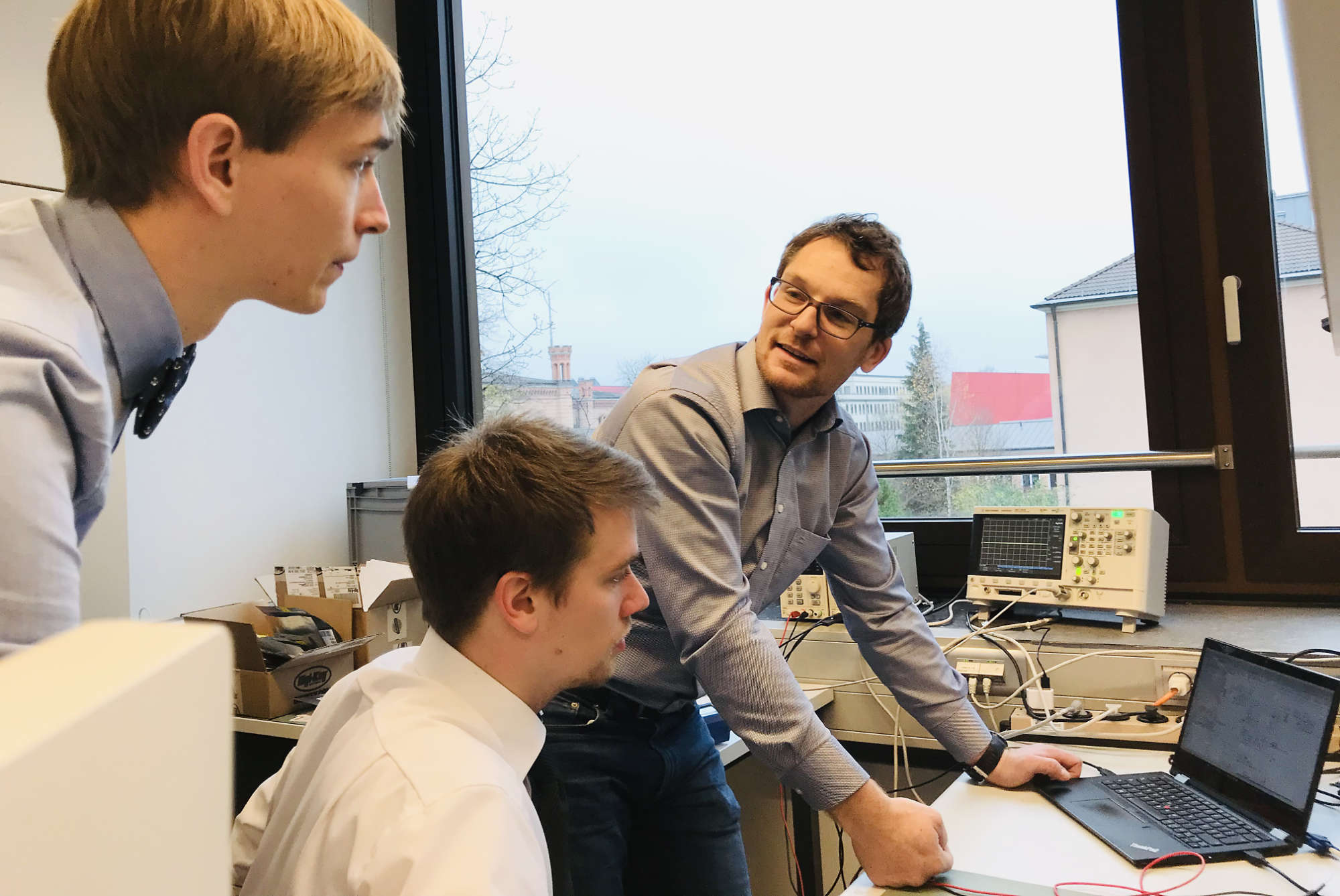
One of your doctoral candidates is actually working at ERC right now as part of a cooperation project, isn’t he?
That’s right. Close ties between industry and universities are a win-win for all concerned. For a start, students get acquainted firsthand with the latest developments in areas such as electrified aviation. And later on, companies have the chance to recruit highly trained employees who are already familiar with their work.

As you probably know, ERC’s motto is #BiggerThanUs. What does it mean for you to work closely together with a company with such a unique vision?
As I see it, everyone who works with technology should have their own vision of how things can be improved. So, ERC’s vision – its core idea – is bigger than everyone who contributes to it and I’m excited to be a part of that. Thinking outside of the box and pooling expertise from different sources is the only way to create something truly ground-breaking. Something that really is #BiggerThanUs.
If you can see yourself being part of an innovative new aviation project, then check out the job opportunities for high fliers on our career page.
About eRC-System GmbH
eRC-System GmbH develops a manned electrical vertical takeoff and landing vehicle, having all aspects of certified aerospace products in mind, right from the start. The company is closely cooperating with suppliers, partners and authorities in order to realize sustainable solutions for technical, operational, and infrastructural challenges.
ERC was founded in 2020 by a team of aerospace engineers that already has gained experience in this field for many years. Being pioneers in the development of new technologies that will last beyond a human and that will have impact on the daily lives of millions, requires ERC’s “Passioneering spirit” – the combination of passion and know-how.
Being well-funded, the initial team already grew a full-featured company around the topic that is still prospering fast and highly dynamic.
